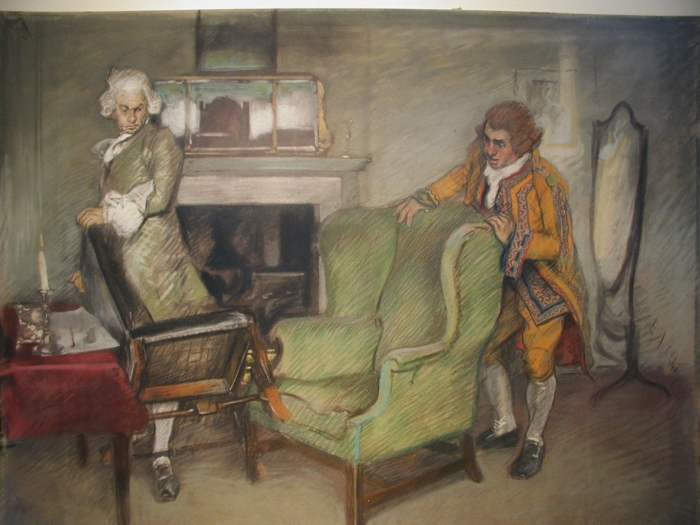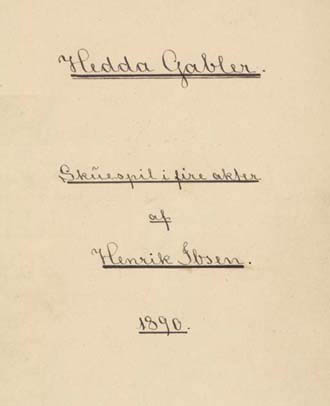|
William Armstrong (theatre Director)
William Armstrong, CBE (30 November 1882 – 5 October 1952) was a British actor, theatre manager and director, associated for many years with the Liverpool Playhouse, where as director he was an important influence on young actors in his company, including, at various times, Robert Donat, Robert Flemyng, Rex Harrison, Michael Redgrave and Diana Wynyard. Life and career Armstrong was born in Edinburgh and studied music at Edinburgh University, but after teaching for some years he chose a theatrical career in preference to a musical one. He made his professional stage debut with Sir Frank Benson's company at the Shakespeare Memorial Theatre, Stratford-upon-Avon in 1908. He made his first London appearance the following year in ''Julius Caesar''. Subsequently he toured in Germany with Meta Illing's English company, and from 1910 to 1912 he was a member of the Glasgow Repertory Theatre Company,Parker (1922), p. 20 acting as assistant director to its founder, Alfred Wareing. In 1912� ... [...More Info...] [...Related Items...] OR: [Wikipedia] [Google] [Baidu] |
Milestones (play)
''Milestones'' is a 1912 play by Arnold Bennett and Edward Knoblock (then known as ''Knoblauch''). It is a story of an upper-middle-class family's progress between 1860 and 1912. First productions The play opened at the Royalty Theatre, London, on 5 March 1912 and ran for 612 performances. In September 1912 it opened at the Liberty Theatre, New York, where it ran for 215 performances."Milestones" Internet Broadway Database. Retrieved 1 June 2020 Original cast  *John Rhead –
*John Rhead –
|
St James's Theatre
The St James's Theatre was in King Street, St James's, London. It opened in 1835 and was demolished in 1957. The theatre was conceived by and built for a popular singer, John Braham; it lost money and after three seasons he retired. A succession of managements over the next forty years also failed to make it a commercial success, and the St James's acquired a reputation as an unlucky theatre. It was not until 1879–1888, under the management of the actors John Hare and Madge and W. H. Kendal that the theatre began to prosper. The Hare-Kendal management was succeeded, after brief and disastrous attempts by other lessees, by that of the actor-manager George Alexander, who was in charge from 1891 until his death in 1918. Under Alexander the house gained a reputation for programming that was adventurous without going too far for the tastes of London society. Among the plays he presented were Oscar Wilde's ''Lady Windermere's Fan'' (1892) and ''The Importance of Being Earn ... [...More Info...] [...Related Items...] OR: [Wikipedia] [Google] [Baidu] |
Barry Jackson (director)
Sir Barry Vincent Jackson (6 September 1879 – 3 April 1961) was an English theatre director, entrepreneur and the founder of the Birmingham Repertory Theatre and, alongside George Bernard Shaw, the Malvern Festival. Early life Jackson was born on 6 September 1879 in Kings Norton, Worcestershire the son of George and Jane ( Spreadborough) Jackson. The Jacksons were a prominent and wealthy family of merchant grocers. His father, George, was a prominent businessman who was passionate about the theatre, reportedly naming his son for renowned British stage actor Barry Sullivan. From a young age, Jackson was exposed to the theatre and to the arts, from school where he was privately educated, to regularly attending the theatre, opera and ballet. The young Jackson saw his first Shakespeare production, ''The Taming of the Shrew'', performed by the Frank Benson Company when he was ten years old. In his teenage years, he travelled around Europe, visiting Greece and Italy, living i ... [...More Info...] [...Related Items...] OR: [Wikipedia] [Google] [Baidu] |
Mrs Malaprop
A malapropism (also called a malaprop, acyrologia, or Dogberryism) is the mistaken use of an incorrect word in place of a word with a similar sound, resulting in a nonsensical, sometimes humorous utterance. An example is the statement attributed to baseball player Yogi Berra, regarding switchhitters, "He hits from both sides of the plate. He's amphibious." Malapropisms often occur as errors in natural speech and are sometimes the subject of media attention, especially when made by politicians or other prominent individuals. Philosopher Donald Davidson has said that malapropisms show the complex process through which the brain translates thoughts into language. Humorous malapropisms are the type that attract the most attention and commentary, but bland malapropisms are common in speech and writing. Etymology The word "malapropism" (and its earlier form, "malaprop") comes from a character named "Mrs. Malaprop" in Richard Brinsley Sheridan's 1775 play ''The Rivals''. Mrs. Malapro ... [...More Info...] [...Related Items...] OR: [Wikipedia] [Google] [Baidu] |
Edith Evans
Dame Edith Mary Evans, (8 February 1888 – 14 October 1976) was an English actress. She was best known for her work on the stage, but also appeared in films at the beginning and towards the end of her career. Between 1964 and 1968, she was nominated for three Academy Awards. Evans's stage career spanned sixty years, during which she played more than 100 roles, in classics by Shakespeare, Congreve, Goldsmith, Sheridan and Wilde, and plays by contemporary writers including Bernard Shaw, Enid Bagnold, Christopher Fry and Noël Coward. She created roles in two of Shaw's plays: Orinthia in ''The Apple Cart'' (1929), and Epifania in ''The Millionairess'' (1940) and was in the British premières of two others: ''Heartbreak House'' (1921) and ''Back to Methuselah'' (1923). Evans became widely known for portraying haughty aristocratic women, as in two of her most famous roles as Lady Bracknell in ''The Importance of Being Earnest'', and Miss Western in the 1963 film of '' Tom Jones. ... [...More Info...] [...Related Items...] OR: [Wikipedia] [Google] [Baidu] |
The Rivals
''The Rivals'' is a comedy of manners by Richard Brinsley Sheridan in five acts which was first performed at Covent Garden Theatre on 17 January 1775. The story has been updated frequently, including a 1935 musical and a 1958 List of Maverick episodes, episode of the TV series ''Maverick (TV series), Maverick'' (see below) starring James Garner and Roger Moore, with attribution. History Production ''The Rivals'' was Sheridan's first play. At the time, he was a young newlywed living in Bath, Somerset, Bath. At Sheridan's insistence, upon marriage his wife Eliza (born Elizabeth Ann Linley, Elizabeth Linley) had given up her career as a singer. This was proper for a gentleman's wife, but it was difficult because Eliza would have earned a substantial income as a performer. Instead, the Sheridans lived beyond their means as they entertained the gentry and nobility with Eliza's singing (in private parties) and Richard's wit. Finally, in need of funds, Richard turned to the only ... [...More Info...] [...Related Items...] OR: [Wikipedia] [Google] [Baidu] |
Richard Bird (actor)
Richard Bird (4 April 1895 – December 1979) was an English actor and film director, director of stage and screen. Born George, Bird took the stage name Richard Bird after being nicknamed "Dickie" by his theatre colleagues. After working in a newspaper office for a year he made his stage debut as a member of the Liverpool Repertory Company in 1917. He went on to appear on both the London, (vide (Latin) 'The French Mistress') and American stage, making his film debut in some silent shorts during 1919. He appeared in films throughout the 1930s and 1940s, playing the lead roles in quota quickies ''The Warren Case'' and ''What Happened Then?'' (both 1934). His film roles of the 1930s tended towards melodrama, such as the jealous Ernest in Maurice Elvey's ''The Water Gipsies (film), The Water Gipsies'' (1932), and the murderous Eric opposite Matheson Lang in ''The Great Defender'' (1934). Middle-age made his characters more affable and his later films showcase his ability at light ... [...More Info...] [...Related Items...] OR: [Wikipedia] [Google] [Baidu] |
The Times
''The Times'' is a British daily national newspaper based in London. It began in 1785 under the title ''The Daily Universal Register'', adopting its current name on 1 January 1788. ''The Times'' and its sister paper ''The Sunday Times'' (founded in 1821) are published by Times Newspapers, since 1981 a subsidiary of News UK, in turn wholly owned by News Corp. ''The Times'' and ''The Sunday Times'', which do not share editorial staff, were founded independently and have only had common ownership since 1966. In general, the political position of ''The Times'' is considered to be centre-right. ''The Times'' is the first newspaper to have borne that name, lending it to numerous other papers around the world, such as ''The Times of India'', ''The New York Times'', and more recently, digital-first publications such as TheTimesBlog.com (Since 2017). In countries where these other titles are popular, the newspaper is often referred to as , or as , although the newspaper is of nationa ... [...More Info...] [...Related Items...] OR: [Wikipedia] [Google] [Baidu] |
Six Characters In Search Of An Author
''Six Characters in Search of an Author'' ( it, Sei personaggi in cerca d'autore, link=no ) is an Italian play by Luigi Pirandello, written and first performed in 1921. An absurdist fiction, absurdist metatheatrical, metatheatric play about the relationship among authors, their characters, and theatre practitioners, it premiered at the Teatro Valle in Rome to a mixed reception, with shouts from the audience of "''Manicomio''!" ("Madhouse!") and "''Incommensurabile''!" ("Off the scale!"), a reaction to the play's illogical progression. Reception improved at subsequent performances, especially after Pirandello provided for the play's third edition, published in 1925, a foreword clarifying its structure and ideas. The play was given in an English translation in the West End theatre, West End of London in February 1922, and had its American premiere in October of that year at the Princess Theatre, New York City, Princess Theatre, New York. Characters The characters are: *The Fath ... [...More Info...] [...Related Items...] OR: [Wikipedia] [Google] [Baidu] |
West End Theatre
West End theatre is mainstream professional theatre staged in the large theatres in and near the West End of London.Christopher Innes, "West End" in ''The Cambridge Guide to Theatre'' (Cambridge: Cambridge University Press, 1998), pp. 1194–1195, Along with New York City's Broadway theatre, West End theatre is usually considered to represent the highest level of commercial theatre in the English-speaking world. Seeing a West End show is a common tourist activity in London. Famous screen actors, British and international alike, frequently appear on the London stage. There are a total of 39 theatres in the West End, with the Theatre Royal, Drury Lane, opened in May 1663, the oldest theatre in London. The Savoy Theatre – built as a showcase for the popular series of comic operas of Gilbert and Sullivan – was entirely lit by electricity in 1881. Opening in October 2022, @sohoplace is the first new West End theatre in 50 years. The Society of London Theatre (SOLT) announced ... [...More Info...] [...Related Items...] OR: [Wikipedia] [Google] [Baidu] |
Hedda Gabbler
''Hedda Gabler'' () is a play written by Norwegian playwright Henrik Ibsen. The world premiere was staged on 31 January 1891 at the Residenztheater in Munich. Ibsen himself was in attendance, although he remained back-stage. The play has been canonized as a masterpiece within the genres of literary realism, nineteenth century theatre, and world drama.Bunin, Ivan. ''About Chekhov: The Unfinished Symphony''. Northwestern University Press (2007) . page 26Checkhov, Anton. ''Anton Chekhov's Life and Thought: Selected Letters and Commentary''. Editor: Karlinsky, Simon. Northwestern University Press (1973) page 385Haugen, Einer Ingvald. ''Ibsen’s Drama: Author to Audience''. University of Minnesota Press (1979) . page 142 Ibsen mainly wrote realistic plays until his forays into modern drama. ''Hedda Gabler'' dramatizes the experiences of the title character, Hedda, the daughter of a general, who is trapped in a marriage and a house that she does not want. Overall, the title character ... [...More Info...] [...Related Items...] OR: [Wikipedia] [Google] [Baidu] |
.jpg)
.jpg)





.jpg)
